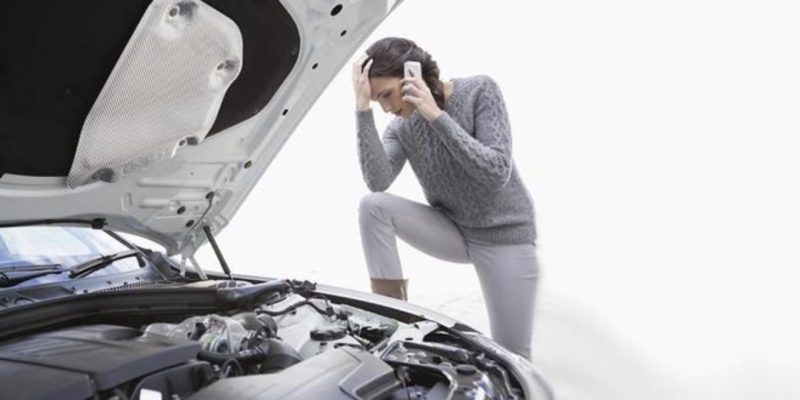Maintaining a car is integral to ownership, as it ensures the vehicle runs smoothly and safely. Many people are thrilled by the prospect of doing their car maintenance. Still, with some basic knowledge and understanding of how cars work, even novice mechanics can handle the most common problems. From flat tires to failed emissions tests, various issues can occur in car maintenance, and knowing what to do when these problems arise will help you keep your vehicle running correctly. Anyone can become an effective DIY mechanic with the right tools and information. Here are eight common faults that can occur in car maintenance and some general procedures for addressing them:
- Flat tire: If you’re car has a flat tire, you’ll need to replace it with your spare tire. Checking the air pressure in your tires regularly will help ensure they are properly inflated, which can decrease the risk of blowing out or having a flat tire on the side of the road. It’s also important to remember that when you buy new tires, it’s essential to read up on all aspects of the type of tire you have purchased to ensure you know how to best maintain them for optimum performance and longevity.
- Dead battery: Keeping your car in good running condition is essential, and VW service technicians are the perfect professionals to help. Dead batteries are one of the most common car problems that can lead to expensive repairs if not caught and addressed quickly. If your car won’t start and you suspect a dead battery, you can try jump-starting it. To do this, you’ll need jumper cables and a working vehicle. Connect the cables according to your owner’s manual instructions, then start the functional vehicle and try to start your car.
- Oil leak: Make sure you have regular oil changes and top off any oil level reduction immediately. If you find any oily residue on your driveway or garage floor, you should investigate it further to determine if it is coming from your car. A qualified mechanic can help diagnose the source of the leak and replace any necessary parts to patch up the damage. Taking care of these repairs quickly can help prevent any long-term engine damage that may occur from an unchecked oil leak, so it’s a better idea to keep an eye out for signs of such a leak whenever possible.
- Overheating engine: Taking care of your car’s engine is important to keep it running optimally and safely. If you notice that your engine is overheating, there are a few procedures that you should take to address the issue right away. First, check the coolant level and add more if needed. Then examine the hoses connected to your radiator and replace any worn or damaged ones. Finally, bleed the system by letting trapped air out of the cooling system through a special bleed valve.
- Brake problems: When it comes to brakes, it’s important to pay attention to any signs they are beginning to wear down or not work correctly; some of these symptoms can include squealing, grinding, or a “soft” feeling upon engaging the brakes. Annually checking brake fluid and pads/drums for thickness and wear is also recommended. If your brake system needs repairs, make sure to have them performed by a mechanic specialising in brake work so the job will be completed correctly and you can avoid more costly repairs down the road.
- Strange noises: If you hear strange noises coming from your car, it could be a sign of a problem with one of the mechanical systems. Pay attention to any loud, grinding, or squeaking noises your car may make while you drive – these indicate potential problems that need fixing. Exhaust system issues, brake wear, and worn-out tires could all cause strange noises, so it is important to have those aspects regularly inspected. Finding the problem sooner rather than later can save you money in repairs down the road and keep you safe while driving.
- Transmission issues: A typical car maintenance procedure often includes changing the oil, air filter, spark plugs, brake fluid and other fluids as recommended by your vehicle’s manufacturer. Additionally, checking the transmission fluid levels every few months is an excellent preventive measure to identify any early problems. Ultimately, keeping a close eye on all the essential components of your car’s transmission can help you avoid most issues and ensure a smooth ride for many years.
- Failed emissions test: The best way to ensure your car will pass the exam is by regularly replacing air filters and spark plugs, checking fuel lines, and ensuring your exhaust system is running properly. Additionally, all engine sensors must function correctly and provide accurate readings. Please do these tasks to benefit the emission test because anyone not functioning correctly can affect the results and lead to failure. Proper preparation for an emission test means keeping gasoline and diesel engines in optimum condition so that you can avoid having to take the exam multiple times or incur high repair expenses when it fails
Autobiography
Eric Reyes is a passionate thought leader having been featured in 50 distinguished online and offline platforms. His passion and knowledge in Finance and Business made him a sought-after contributor providing valuable insights to his readers. You can find him reading a book and discussing current events in his spare time.



